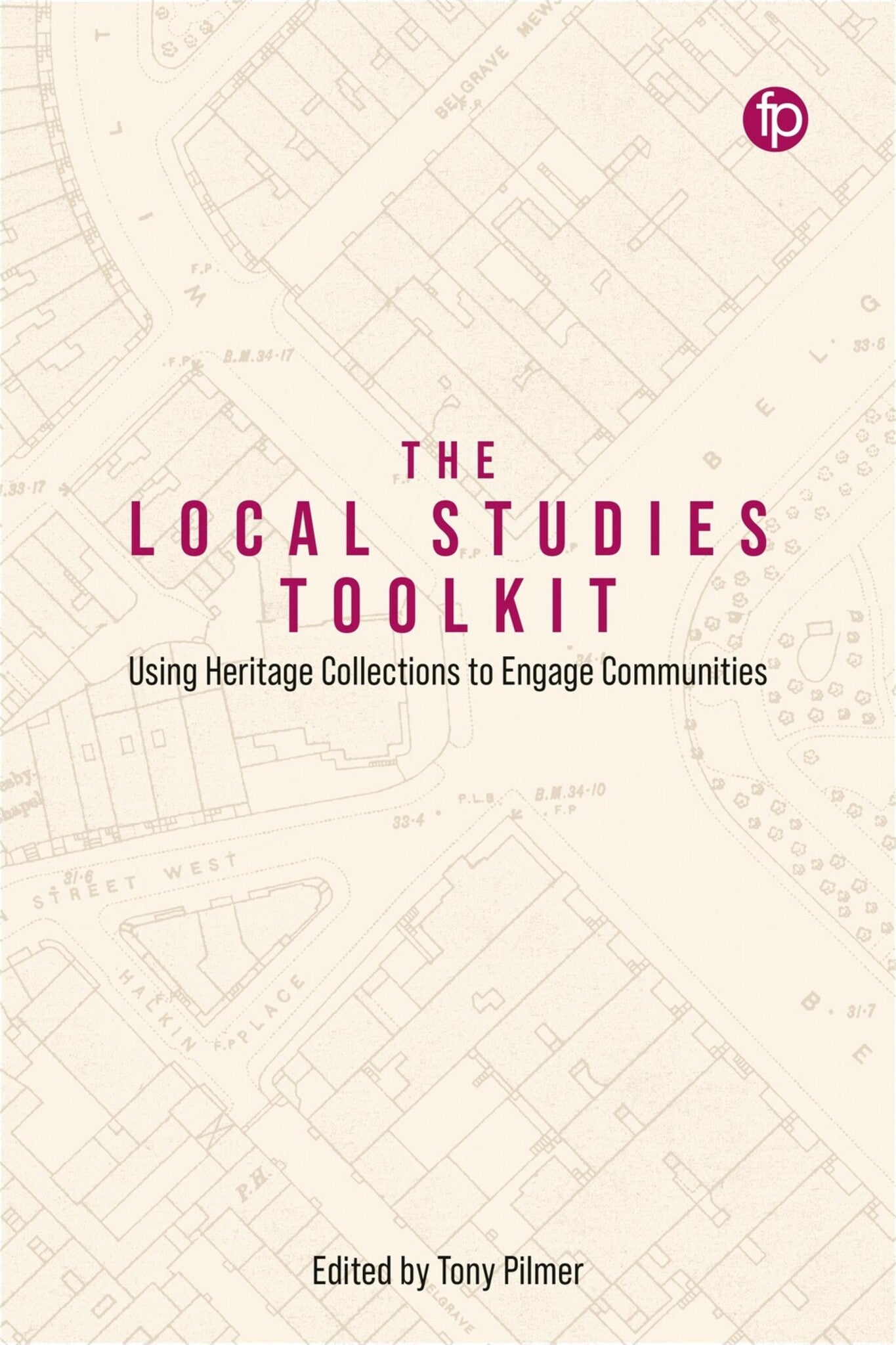We're sorry. An error has occurred
Please cancel or retry.
The Local Studies Toolkit

The Local Studies Toolkit is a comprehensive and practical resource to help support and inspire local studies professionals and the wider heritage sector to provide an excellent heritage service within their community
Written by members of the CILIP Local Studies Group, the toolkit covers all aspects of local studies and contains tips and advice throughout on how to structure a local studies collection and ensure an effective service. Topics covered include:
- Why local studies matter;
- Working with volunteers, fellow heritage professionals, crowdfunding and community archives;
- Budgeting, measuring impact and emergency planning;
- Marketing, social media and exhibitions;
- Project management;
- Copyright, cataloguing and classification;
- Collection development, conservation and digital preservation;
- Making the most out of local history resources such as maps, newspapers, photographs and ephemera;
- Local studies in a global context.
This toolkit is the ultimate guide for experienced local studies librarians and professionals and those new to the profession seeking to develop their skills. It will also be an invaluable resource for those working in local museums, local authority archives and special collections.

LANGUAGE ARTS & DISCIPLINES / Library & Information Science / Collection Development, Library, archive and information management, LANGUAGE ARTS & DISCIPLINES / Library & Information Science / Archives & Special Libraries, LANGUAGE ARTS & DISCIPLINES / Library & Information Science / Cataloging & Classification

Introduction
Part 1: Why local studies matters
- Appeals to Heads of Library Services, Councillors and Local Studies Librarians
Part 2: What is a local studies librarian?
- What is the role of local studies librarians & local studies para-professionals?
- Continual Professional Development
Part 3: Relationships
- Who uses a local studies collection?
- Volunteers
- Friends groups
- Crowdfunding
- Supporting community projects
- Community archives
- Co-ordinating local studies across a service
- Relationships with fellow heritage, library and local government professionals
Part 4: Planning & priorities
- Linking in with local authority priorities
- Community engagement planning
- Measuring impact
- Budgeting
- Emergency planning
- Business continuity planning
Part 5: Creating & running large projects
- Before you start
- Finding out more about your target audiences
- Partnerships
- Financing your project
- Evaluation
Part 6: Marketing & promotions
- Social media
- Virtual events
- Apps
- Exhibitions
Part 7: Copyright & Cataloguing
- Copyright
- Metadata, cataloguing & classification
Part 8: Resources
- The Local Studies Library as a space
- Collection development
- Conservation
- Book stock
- Maps & plans
- Oral history
- Photographs & other visual material
- Newspapers
- Ephemera
- Directories
- Digital preservation
- Archives
- Subscription websites
- Indexes & transcriptions
- General web-based resources
Part 9: Local Studies in Scotland
- Organisations
- Resources
Part 10: Local Studies in a global context * The part local history plays in world history
Index




